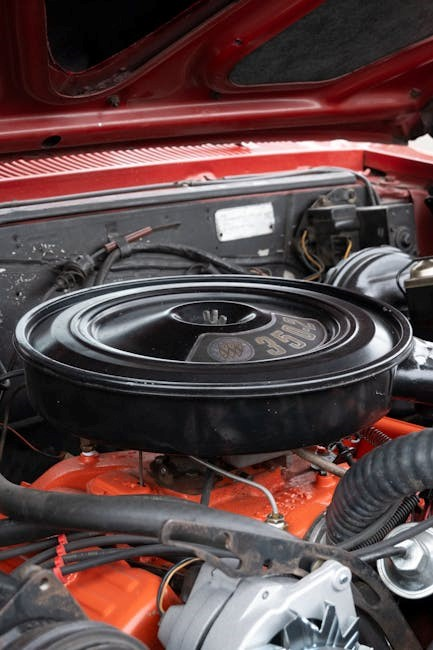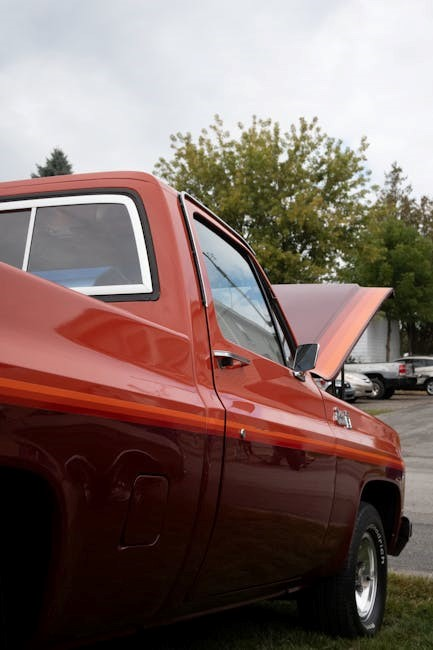Overview of the Michigan Lost Title Application Process

The Michigan lost title application process is a straightforward procedure for replacing a lost, stolen, or damaged vehicle title. Vehicle owners must submit the Duplicate Title Application form (TR-11L), provide required documentation, and pay the associated fees. This process ensures legal ownership proof, essential for selling or transferring the vehicle. Applications can be submitted by mail, in-person, or online, with processing times varying based on the method. The Michigan Secretary of State handles these applications, ensuring compliance with state regulations.
Why a Lost Title Application is Necessary
A lost title application is essential for maintaining legal proof of vehicle ownership in Michigan. Without a title, selling or transferring ownership becomes impossible, and operating the vehicle may lead to legal issues. The title serves as the primary document verifying ownership, making it crucial for transactions and avoiding penalties. Failing to replace a lost title can result in delays in vehicle sales or transfers, as buyers and authorities require this document. Additionally, a lost title may lead to potential fraud or disputes over ownership. Applying for a duplicate title ensures compliance with state regulations and protects your rights as a vehicle owner. The process is straightforward and necessary for maintaining the legitimacy of your vehicle’s ownership.
Consequences of Not Replacing a Lost Title
Failing to replace a lost vehicle title in Michigan can lead to significant legal and financial consequences. Without a title, you cannot legally sell or transfer ownership of your vehicle, delaying potential sales and causing financial losses. Additionally, operating a vehicle without a title may result in penalties and fines if stopped by law enforcement. The absence of a title can also complicate ownership disputes, making it difficult to prove your claim. Furthermore, lenders may refuse to provide financing for a vehicle without a valid title, limiting your financial options. Replacing the title promptly ensures compliance with state laws and avoids these potential issues, protecting your investment and legal rights as a vehicle owner.

Eligibility Criteria for Filing a Lost Title Application
Vehicle owners in Michigan must meet specific requirements to apply for a duplicate title. Applicants must provide proof of ownership and complete the TR-11L form accurately.
Who Can Apply for a Duplicate Title in Michigan
In Michigan, vehicle owners, including individuals, businesses, and organizations, are eligible to apply for a duplicate title if the original is lost, stolen, or damaged. The applicant must be the legal owner of the vehicle, as recorded by the Michigan Secretary of State. Lienholders or authorized representatives may also apply if they have legal authority over the vehicle. Heirs or court-appointed representatives can submit an application if the vehicle title was inherited. Proper documentation, such as proof of ownership and identity, is required. The applicant must also be a Michigan resident or the vehicle must be registered in the state. This ensures the process is secure and maintains legal accuracy.
Situations Requiring a Duplicate Title
A duplicate title is necessary in several specific situations. If the original title is lost, stolen, or damaged beyond legibility, a replacement is required. This ensures the vehicle’s ownership can still be legally verified. Additionally, when selling or transferring ownership of a vehicle, a valid title is mandatory. If the title has been mutilated or altered, a duplicate is needed to maintain its legal validity. Furthermore, when a vehicle is inherited, the heirs must obtain a duplicate title in their name to transfer ownership. These scenarios highlight the importance of securing a duplicate title to avoid legal and procedural complications in future transactions.

Required Documentation for a Lost Title Application
The process requires a completed application form, valid photo identification, vehicle registration, and proof of ownership. Additional documents may be needed for special cases.
Photo Identification Requirements
Applicants must provide a valid government-issued photo ID, such as a Michigan driver’s license, state ID card, or passport. The ID must be current and include the applicant’s name and Michigan address. This ensures identity verification and prevents fraud. For out-of-state residents, additional proof of residency may be required. The photo ID is essential for processing the application and confirming the applicant’s legal standing to request a duplicate title. Without proper identification, the application may be delayed or rejected. Ensure the ID is legible and matches the name on the vehicle’s ownership documents to avoid complications.
Vehicle Registration and Proof of Ownership
Applicants must provide their vehicle’s current registration or a renewal notice as proof of ownership. This ensures the vehicle is legally registered in Michigan and confirms the applicant’s connection to the vehicle. Additionally, a bill of sale or other ownership documents may be required to verify legal ownership, especially if the title is lost. The registration must match the name and address on the lost title application to avoid delays. Proof of ownership is critical to validate the applicant’s right to request a duplicate title and ensures the process is legally sound. Documentation must be current and match the details on file with the Secretary of State.
Additional Documentation for Special Cases
In certain situations, additional documentation is required to process a lost title application. For example, if the vehicle has a lien, a notarized letter from the lienholder or a copy of the lien agreement must be submitted. If the title was in the name of a deceased owner, probate documents or a death certificate may be needed. In cases of a power of attorney, a notarized POA document must accompany the application. The Michigan Secretary of State may also request a court order if ownership disputes arise. These documents ensure the application is legally valid and processed correctly. Providing the correct supplementary materials prevents delays and ensures compliance with state regulations.

Step-by-Step Guide to Completing the Application
The process involves downloading the TR-11L form, filling it accurately, notarizing it, and submitting it with required documents. Ensure all details are correct to avoid delays.

Downloading the Michigan Lost Title Application Form
To initiate the process, visit the Michigan Secretary of State’s official website. Navigate to the “Forms and Publications” section and search for the TR-11L form, titled “Application for Michigan Vehicle Title.” Download the PDF version to ensure compatibility with most devices. Ensure the form is the most recent version to avoid submission issues. If unsure, verify the form number and date at the top of the document. Save the form to your device for easy access and printing. Double-check that your printer settings are correct to maintain the form’s formatting. If accessing digitally, ensure your software supports fillable PDFs for ease of completion.
Filling Out the Form Accurately
Accurately completing the Michigan Lost Title Application (TR-11L) is crucial to avoid delays. Begin by carefully reading the instructions on the form. Fill in all required fields, such as the vehicle’s make, year, model, and VIN (Vehicle Identification Number). Provide the owner’s full legal name, current address, and valid photo ID information. Use black ink and write clearly in capital letters to ensure readability. If the vehicle has multiple owners, all parties must sign the form. For titles with a lien, include the lienholder’s details. Double-check all information for accuracy before submission. Notarization may be required for certain situations, so review the form’s instructions carefully. Ensure no sections are left blank or incomplete;
Signatures and Notarization Requirements
Signing the Michigan Lost Title Application (TR-11L) is a critical step to ensure its validity. All vehicle owners listed on the title must sign the form in the designated areas. If the vehicle has multiple owners, each must provide their signature. In cases where a lien exists, the lienholder’s signature may also be required. Notarization is necessary if the application involves a power of attorney or if the Secretary of State deems it required. Ensure all signatures are witnessed and notarized according to Michigan state guidelines; Failure to meet these requirements may result in delays or rejection of the application. Always review the form’s instructions to confirm specific signature and notarization needs.

Preparing the Application for Submission
Once the Michigan Lost Title Application (TR-11L) is completed and signed, gather all required documents and ensure they are in order. Make photocopies of your photo ID, proof of ownership, and any additional paperwork for your records. Place the original application, along with the fee payment (check or money order), in an envelope. Use secure packaging to prevent damage. Include a self-addressed, stamped envelope for the return of your duplicate title. Double-check the mailing address provided on the form, typically the Michigan Department of State, Lansing office. Submitting a well-organized application ensures faster processing and reduces the risk of delays or rejection.

Processing Time and Fees
The duplicate title processing time typically takes 10-14 business days. The fee for a lost title in Michigan is $15, which is non-refundable. Additional fees may apply.
Estimated Processing Time for Duplicate Titles
The processing time for a duplicate title in Michigan typically ranges from 10 to 14 business days. Applications submitted in person or online are usually processed faster, while mail-in applications may take longer due to shipping times. Expedited services are available for an additional fee, reducing the processing time to as little as one business day. It’s important to note that delays may occur during peak periods or if additional documentation is required. Once processed, the duplicate title is mailed to the applicant via first-class mail. Applicants are advised to plan accordingly and allow sufficient time for delivery before needing the title for sales or transfers.
Associated Fees for a Lost Title Application
The fee for applying for a duplicate title in Michigan is $15, which includes the processing and issuance of the replacement title. If you opt for expedited service, an additional $20 is required, making the total $35. These fees are non-refundable, even if the application is denied. Payment can be made by check, money order, or credit card for online submissions. If submitting in person, cash may also be accepted. For online applications, a $2 convenience fee applies. There are no fee waivers for low-income individuals or special cases. These fees are subject to change, so it’s advisable to verify with the Michigan Secretary of State for the most current pricing.
Payment Methods Accepted
When submitting a lost title application in Michigan, you can pay the required fees using various methods. For online applications, the Michigan Secretary of State accepts major credit cards, including Visa, MasterCard, and Discover. If submitting by mail, a check or money order made payable to the “State of Michigan” is required. In-person submissions at a Secretary of State office allow cash, checks, or credit/debit card payments. Note that credit card payments may incur a small convenience fee for online transactions. Ensure all payments are in U.S. dollars and include the correct amount to avoid processing delays. Always verify acceptable payment methods before submitting your application.

Submission Methods

The Michigan lost title application can be submitted by mail, in person at a Secretary of State office, or online for added convenience and efficiency.
Mail-in Submission Guidelines
To submit your Michigan lost title application by mail, begin by downloading and completing the TR-11L form. Ensure all sections are filled accurately. Gather required documents, including a valid photo ID, proof of vehicle ownership, and any additional paperwork for special cases. Attach a check or money order for the duplicate title fee, currently $15. Mail the completed application and supporting documents to the address listed on the form, typically Michigan Department of State, Lansing, MI 48918. Consider using certified mail with tracking for proof of delivery. Processing typically begins once the application is received.
In-Person Submission at a Secretary of State Office
Visit a Michigan Secretary of State office to submit your lost title application in person. Bring the completed TR-11L form, a valid photo ID, proof of vehicle ownership, and any required additional documents. Payment for the $15 duplicate title fee can be made with cash, check, or credit card. Present all documents to the clerk, who will review and process your application. In-person submissions are typically processed the same day, allowing you to receive your duplicate title immediately. This method is ideal for those needing quick turnaround. Ensure all information is accurate before submission to avoid delays.
Online Submission Options
Michigan offers an online platform for submitting a lost title application, providing a convenient alternative to mail or in-person visits. Visit the Michigan Secretary of State’s official website and access the online application system. Create an account or log in if you already have one. Fill out the application form accurately, ensuring all details match your records. Upload the required documents, such as photo ID and proof of ownership. Pay the $15 duplicate title fee using a major credit card or e-check. Once submitted, the process is typically completed within 7-10 business days. You will receive an email confirmation of your submission. This method is ideal for those who prefer the convenience of applying from home.
Special Cases and Considerations
Special cases, such as out-of-state residents or vehicles with liens, require additional documentation. Dealership purchases may need specific forms. Always consult the Michigan Secretary of State for tailored guidance.
Out-of-State Residents and Lost Titles
If you are an out-of-state resident but previously registered your vehicle in Michigan, you may still apply for a duplicate title. You must provide proof of ownership, such as a registration or insurance document. Complete the Application for Michigan Vehicle Title (TR-29L) and attach a copy of your valid government-issued ID. Out-of-state applicants can submit their application by mail or through a third-party service. Ensure all documents are notarized if required. Processing times remain the same, but mailing delays may apply. For faster service, consider using certified mail with tracking. Contact the Michigan Secretary of State for specific instructions tailored to your situation;
Lost Titles for Vehicles Purchased from Dealerships
If you purchased a vehicle from a Michigan dealership and the title is lost, you may need to contact the dealership for assistance. Dealers typically handle title processing and may provide a replacement or documentation to support your application. You will need to submit proof of purchase, such as a bill of sale or signed purchase agreement. If the dealership issued a Manufacturer’s Certificate of Origin, this can also be used. Attach a notarized statement from the dealership confirming the title was never received. Include this documentation with your Michigan Lost Title Application and photo ID. This process ensures the Secretary of State can verify ownership and issue a duplicate title efficiently.
Handling a Lost Title for a Vehicle with a Lien
If your vehicle has a lien and the title is lost, you must involve the lienholder in the replacement process. The lienholder typically holds the title until the loan is paid off. To apply for a duplicate title, you will need to submit the Michigan Lost Title Application along with documentation from the lienholder, such as a notarized statement or a letter confirming the lien. The duplicate title will be mailed directly to the lienholder, ensuring their interest in the vehicle is protected. You must also provide proof of identity and pay the required fee. This process ensures the lienholder’s rights are maintained while resolving the lost title issue.
Frequently Asked Questions
- What if I never received my original title?
- Can I sell a vehicle without a title in Michigan?
- How long does it take to receive a duplicate title?
What If I Never Received My Original Title?
If you never received your original title, you can still apply for a duplicate by completing the Michigan Lost Title Application (form TR-29L). Contact the Michigan Secretary of State to confirm your title status. Gather required documents, such as photo ID and proof of ownership. Submit the application with the appropriate fee. Processing typically takes 10-14 business days. If your title was lost in transit, the Secretary of State will investigate and issue a duplicate if necessary. Ensure all information is accurate to avoid delays. This process helps resolve title issues efficiently, ensuring you can legally sell, transfer, or register your vehicle.
Can I Sell a Vehicle Without a Title in Michigan?
Selling a vehicle without a title in Michigan is possible but not recommended, as it can lead to complications. Buyers may be hesitant to purchase a vehicle without proof of ownership, and the sale could be delayed or result in a lower sale price. While it is not illegal to sell a vehicle without a title, the buyer must obtain a duplicate title before registering the vehicle. As a seller, it is in your best interest to resolve the lost title issue by completing a Michigan Lost Title Application (form TR-29L) to ensure a smooth transaction. This step helps avoid legal or financial disputes and ensures the transfer of ownership is valid.
How Long Does It Take to Receive a Duplicate Title?
The processing time for a duplicate title in Michigan typically ranges from 10 to 14 business days after the application is received. However, this timeline may vary depending on the submission method and the workload of the Secretary of State’s office. If you need the title urgently, Michigan offers an expedited service option, which can reduce the processing time to as little as 24 hours. For mail-in applications, allow additional time for postal delivery. Once processed, the duplicate title will be mailed to the address listed on the application. It is recommended to check the status of your application online or contact the Michigan Secretary of State for updates.
Legal and Financial Implications
Losing a vehicle title can lead to legal penalties and financial consequences, including difficulty selling or transferring ownership. Act promptly to avoid liability issues.
Penalties for Operating a Vehicle Without a Title
Operating a vehicle without a title in Michigan can result in legal consequences. While a title is not required for driving, failure to present it when selling or transferring ownership can lead to penalties. Fines and legal issues may arise if you cannot prove ownership. Additionally, attempting to sell a vehicle without a title can result in civil penalties or disputes with buyers. Law enforcement may impound the vehicle if ownership cannot be verified. It is essential to obtain a duplicate title to avoid complications and ensure compliance with state regulations. Delays in resolving title issues can escalate penalties and financial burdens. Always prioritize resolving lost title matters promptly to maintain legal and financial stability.
Impact on Vehicle Sales and Transfers
A lost title can significantly impact the sale or transfer of a vehicle in Michigan. Without a valid title, buyers may be unwilling to purchase the vehicle, as it raises concerns about ownership legitimacy. Delays or cancellations of sales are common, as the title is required to complete the transfer process. Additionally, a missing title can lead to disputes between buyers and sellers, potentially resulting in financial losses. Private sales become particularly challenging, as buyers often demand proof of ownership before finalizing the purchase. Dealerships may also refuse to accept vehicles without titles, further complicating the process. Obtaining a duplicate title is essential to ensure smooth transactions and maintain the vehicle’s market value. Prompt action is crucial to avoid prolonged delays and complications.
Liability Concerns with a Lost Title
A lost title can lead to legal and financial liability if not addressed promptly. Legal issues may arise if the vehicle is sold or transferred without a valid title, as it can be considered fraudulent. Buyers may sue for damages if they discover the title was lost after the sale. Additionally, financial liability can occur if the vehicle is involved in an accident or used in illegal activities, and the owner cannot prove ownership. Lenders or lienholders may also pursue legal action if they are not notified of the lost title. Failing to replace the title can lead to complications in resolving disputes or claims related to the vehicle.
Resources and Assistance
The Michigan Secretary of State offers resources, including official forms, contact information, and online tools for tracking applications. Professional services can also assist with title recovery.
Contact Information for the Michigan Secretary of State
The Michigan Secretary of State provides essential contact information for inquiries and assistance with lost title applications. Residents can reach the department at (888) 767-6424 or via email through their official website. The main office is located at 430 W. Allegan St., Lansing, MI 48918. Additionally, branch offices statewide offer in-person support for title-related matters. For more details, visit the official Michigan Secretary of State website at https://www.michigan.gov/sos. Phone support is available Monday through Friday, 8:30 AM to 5:00 PM EST. This resource ensures applicants can easily access guidance for completing their lost title application accurately and efficiently.
Online Tools for Tracking Application Status
The Michigan Secretary of State offers an online portal for tracking the status of a lost title application. Applicants can visit the official website at https://www.michigan.gov/sos and use the “Track My Application” tool. To access this service, users will need their application number or Vehicle Identification Number (VIN). This tool provides real-time updates, allowing applicants to monitor the progress of their duplicate title request. The portal is available 24/7, offering convenience and transparency. Additionally, applicants can sign up for email notifications to stay informed about their application’s status. This resource helps ensure a smooth and efficient process for obtaining a duplicate title in Michigan.
Professional Services for Title Recovery
For individuals facing challenges with the Michigan lost title application process, professional services can provide valuable assistance. Title recovery companies and legal firms specializing in vehicle titles can help navigate complex situations, such as missing documentation or contested ownership. These services often handle communication with the Secretary of State, ensuring applications are completed correctly and efficiently. Additionally, DMV agents or attorneys may offer expedited processing options, reducing delays. While these services incur costs, they can save time and alleviate stress, particularly in cases involving liens, disputes, or out-of-state vehicle ownership. It’s important to research and select reputable providers to ensure reliable and timely results.

